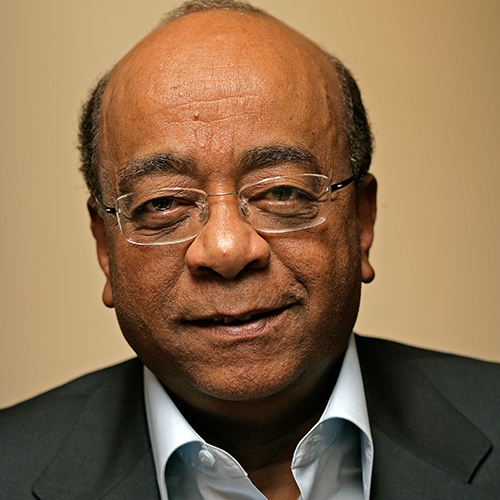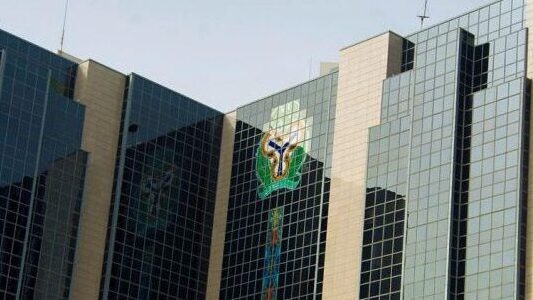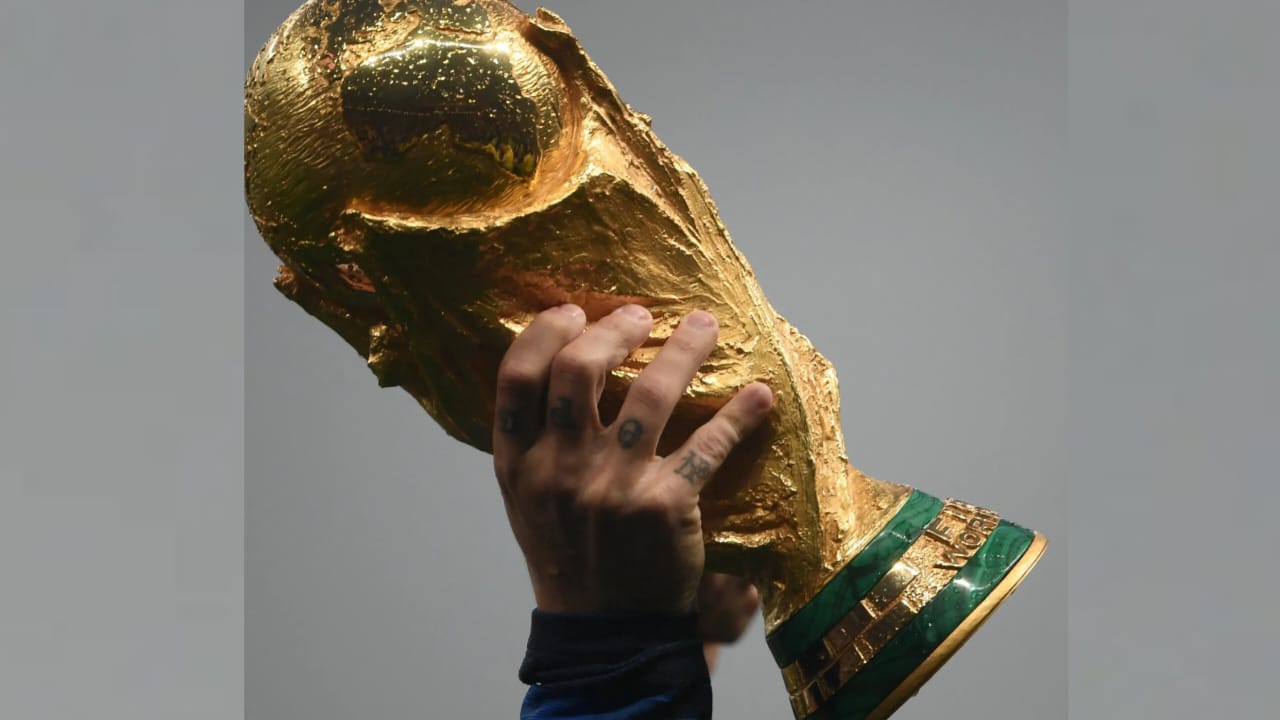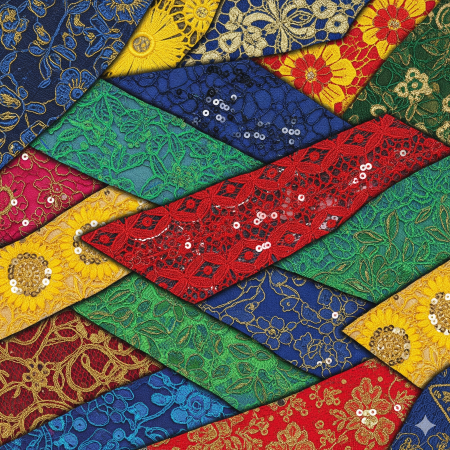Mo Ibrahim: The Man Who Laid The Foundation For Airtel Africa

Did you know that Africa’s Airteldidn’t begin as the Airtel you know today? It all began in 1998 withCeltel, founded by visionary Sudanese-British entrepreneurMo Ibrahim.
In 2005, Kuwait’s MTC acquired Celtel and rebranded it to Zain by 2008. A few years later, in June 2010, India’s Bharti Airtel purchased Zain’s African business for US $10.7 billion, and by November 2010, the network had officially transformed into Airtel Africa.
Today, Ibrahim’s estimated net worth isapproximately 1.8 billion dollars. While this reflects his remarkable business success, it is his broader impact on the continent that defines his legacy.
Humble Beginnings in Sudan
Mo Ibrahim was born onMay 3, 1946, in Sudan, into a family of Nubian and Arab descent. As the second of five children, he grew up in a household where education was held in the highest regard.
His mother, Aida, placed a strong emphasis on academic excellence, believing it to be the foundation for a better future.
Afterall, it is the Sudanese who often say “Al-‘ilm noor wal-jahl thuloom", meaning: "Knowledge is light and ignorance is darkness."
As such, when the family moved to Alexandria, Egypt, Ibrahim continued his education with determination. He went on to earn a degree in electrical engineering from Alexandria University.
After completing his undergraduate studies, Ibrahim returned briefly to Sudan to work for Sudan Telecom. His time there deepened his interest in telecommunications, and he soon decided to pursue further education in the United Kingdom.
He earned a master's degree in Electronics and Electrical Engineering from theUniversity of Bradford, followed by a PhD in Mobile Communications from the University of Birmingham.
Equipped with advanced knowledge, Ibrahim joined British Telecom and became the technical director of Cellnet, which later becameO2. Here, he played a key role in developing and launching the United Kingdom’s first cellular network. This early success would mark the beginning of a much larger mission.
Entrepreneurship with a Purpose
Image Credit: Unsplash
In 1989, Ibrahim founded Mobile Systems International (MSI), a consultancy and software firm that served telecommunications operators around the world.
His work with MSI confirmed his belief that mobile technology could transform lives. However, he also recognized that Africa was being left behind in the global communications revolution.
In 1998, he created a new company named MSI Cellular Investments, focused specifically on building mobile networks in Africa. The idea was ambitious and widely considered risky at the time.
International banks were reluctant to fund telecom projects in Africa, citing economic and political instability.
Ibrahim chose to raise capital primarily through equity rather than debt, demonstrating his willingness to challenge conventional financing models.
Building a Network Across Africa
Image Credit: Unsplash
As the company grew in scale and ambition, it changed its name in 2004 to Celtel International. This new name reflected its broader identity as a pan-African mobile operator. Celtel quickly expanded into countries that had previously lacked reliable mobile infrastructure, bringing connectivity to millions.
In 2005, Celtel was acquired by Kuwait’s Mobile Telecommunications Company (MTC). A few years later, beginning in 2007, MTC initiated a rebranding effort and introduced a new name for its global operations: Zain.
In 2010, Indian telecom giantBharti Airtel acquired Zain’s African business, including the former Celtel operations. By the end of that year, the Celtel brand had been fully rebranded as Airtel across Africa.
In some markets, such as Nigeria, Celtel had previously absorbed local providers like Vmobile before undergoing the transition to Zain and eventually Airtel. Throughout these changes, the network infrastructure built under Ibrahim’s leadership remained the foundation for mobile communication across much of the continent.
A Legacy of Impact
Under Ibrahim’s direction, Celtel operated in 14 African countries and served more than 24 million subscribers. The company employed over 4,000 people, with 98 percent of the workforce being African. Celtel’s growth proved that mobile technology could thrive in Africa when led by a clear vision, deep local engagement, and innovative financing strategies.
The 2005 sale of Celtel for 3.4 billion dollars became one of the most significant telecom deals in African history. More importantly, the company had already laid the groundwork for far-reaching social and economic transformation.
Philanthropy Rooted in Leadership
Following his business success, Ibrahim turned his attention to governance and leadership on the African continent. In 2006, he established theMo Ibrahim Foundation, which promotes good governance, transparency, and accountability. The foundation is known for awarding the Ibrahim Prize for Achievement in African Leadership, one of the world’s most prestigious prizes for public service.
Through his foundation, Ibrahim has continued to support responsible leadership and civic empowerment, believing that economic development must be accompanied by strong institutions and ethical leadership.
Global Recognition and Enduring Influence
Mo Ibrahim’s influence has extended far beyond the telecommunications sector. His contributions have earned him international recognition, including the Clinton Global Citizen Award and the GSM Lifetime Achievement Award. He has also been knighted(KCMG) for his services to philanthropy and charitable causes.
Conclusion
Don’t be scared, take that leap, and find people with a similar mission.
Cover Image Credit:The Giving Pledge
You may also like...
Best and Worst Foods for Heartburn: What to Eat to Reduce Acid Reflux

That burning in your chest is not random. Read about the foods that trigger heartburn, the ones that calm it, and simple...
Is Traveling Really Essential for Personal Growth or Just an Overhyped Luxury?

Some say traveling is the best way to grow and discover yourself, while others call it an overrated luxury. This article...
The Dark Side of AI: Human Misuse and Its Consequences

Artificial Intelligence shapes daily life, improving convenience and efficiency. However, misuse can cause misinformatio...
Will Nigeria's Interest Rates Fall This Year? Central Bank Actions and Inflation Expectations

Nigeria’s interest rates are at historic highs, but inflation is easing. Here’s what the CBN’s actions, expert forecasts...
10 Smart Tech Tools Every Startup, Creative, and Savvy User Should Know

Are you into startups, a creative, or a savvy User? This is a curated guide to 10 powerful tech tools that help anyone ...
Fractional Investing: Democratizing the Stock Market for Everyone

Understand how fractional investing allows anyone to own portions of expensive stocks, making the stock market accessibl...
Do You Know Only Eight Countries Have Ever Won the World Cup?

Only eight countries have ever won the FIFA World Cup since 1930. Read this piece to explore who they are, when they won...
User Control in the Age of AI: What Firefox's New "AI Off" Switch Means for Digital Autonomy

Firefox’s new “AI off” switch challenges the default spread of AI in tech, raising bigger questions about consent, user ...






